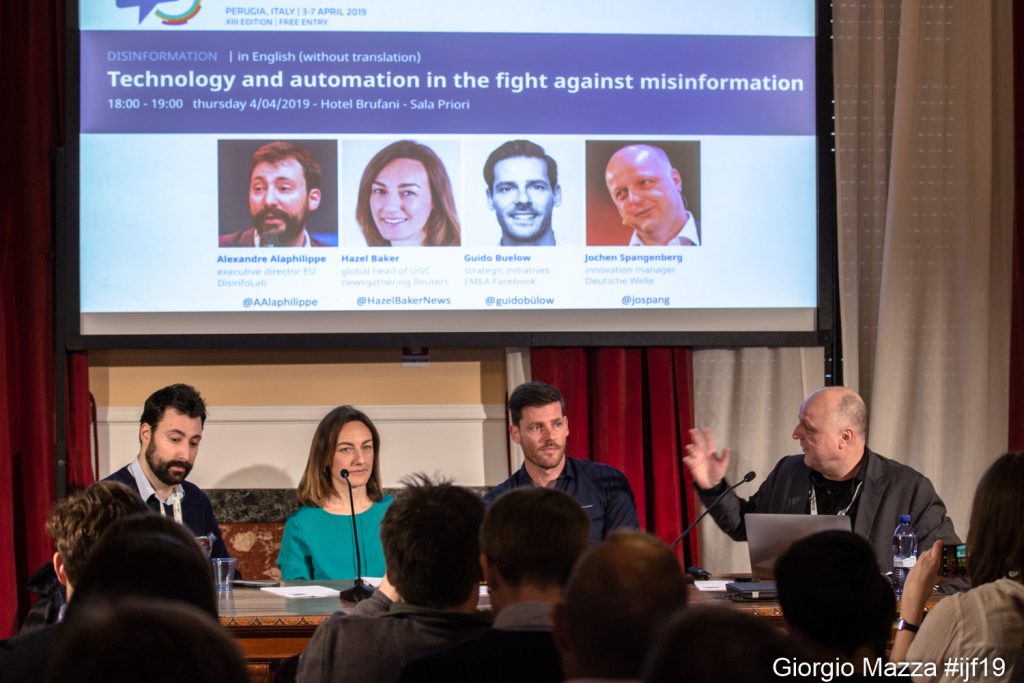Stay up to date by subscribing to our Newsletter or by following our Telegram channel, and join the conversation on Facebook, Twitter, and Instagram.
Edited by Marco Nurra
Join the Climate Reporting Train to Perugia. This year, a group of speakers from London are taking the train to the festival – travelling over land (and under sea) via Paris, Turin, Milan and Florence to make a small gesture of consciousness that we want to limit the impact of our work, and the travel often required, in exacerbating the crisis.
The Sigmas: An award to celebrate, elevate and empower data journalism around the globe. See you in Perugia! The Sigma Awards is a new data journalism award which aims to not just celebrate the best data journalism around the world, but also to empower, elevate and enlighten the global community of data journalists. It was created by Aron Pilhofer (Temple University) and Reginald Chua (Reuters), with support from Simon Rogers (Google), and Marianne Bouchart (HEI-DA). It is sponsored by the Google News Initiative and hosted by the European Journalism Centre’s DataJournalism.com.
Glenn Greenwald charged with cybercrimes in Brazil. Greenwald is accused of being part of a “criminal investigation” that hacked into the cellphones of prosecutors and public officials. The attack mirrors the US case against Assange. Press and internet freedom advocates – including Edward Snowden – have criticised the prosecutors’ decision to charge the journalist with cybercrimes as a blatant abuse of power and an existential threat to investigative reporting in the country.
On women in top jobs, the Financial Times continues to be an unexpected leader. Some really impressive stats from the Financial Times: Of its 11 top leaders, five are now women, including its top editor; 51% of the paper’s managers are women; the shortlists for all job openings must be 50/50 male/female.
What do we want? Unbiased reporting! When do we want it? During protests! Not all protests get treated equally. Stories about women’s marches and anti-Trump protests give more voice to the protesters than those about Black Lives Matter and other anti-racism protests.
What journalists can do to report more effectively — and compassionately — on gun violence. Ten ways to constructively cover gun violence by applying a “public health model”.
From the narratives to their targets, Russian and Chinese disinformation operations are substantially different. “I kind of look at Russia as the hurricane. It comes in fast and hard. China, on the other hand, is climate change: long, slow, pervasive.” The use of social media is also interesting in the comparison between China and Russia. Beijing has many more means at its disposal, including the so-called 50-cent army of hundreds of thousands of trolls. Great numbers give an advantage in terms of dissimulation because they make it possible to put a real human in charge of one or a few social media accounts, and make it easier to mimic genuine social behavior, rendering detection more difficult.
Saudi Arabia’s bot army flourishes as Twitter fails to tame the beast. The so-called Diavolo network, which mostly promotes content related to the conservative satellite news station Saudi 24 and its sister channels, has been responsible for spreading sectarian hate speech, antisemitism and conspiracy theories about the murdered journalist Jamal Khashoggi, among other things.
Here’s how The New York Times tested blockchain to help you identify faked photos on your timeline. They conducted in-depth interviews (“qualitative user studies”) with 34 news consumers in three rounds to both understand how people currently process the news images they see and what information would help them gauge a photo’s validity. “What we saw was a tendency to accept almost all images at first glance, regardless of subject area.”
The International Journalism Festival #ijf19 On-Demand
Every week, one recommendation from the extensive programme of the last edition of the International Journalism Festival.

Today we are inviting you to watch “Technology and automation in the fight against misinformation“. Using technology in the fight against misinformation is nothing new. Numerous developments and initiatives that aim to counter the spread of false information with the aid of technology have emerged in the past.

